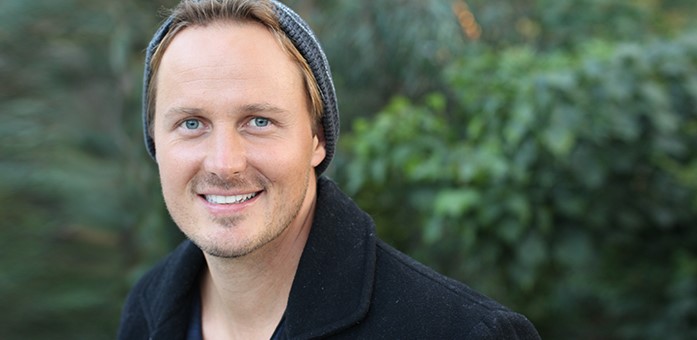Halcion Detox Facility Benton Harbor MI
Home
Halcion Detox Facility Benton Harbor MI Resources & Info
Halcion Detox Facility Benton Harbor MI
The pervasiveness of drug addiction stems from several factors, including alterations in brain chemistry caused by prescription and street drugs alike, increasing availability of drugs, and untreated emotional or psychological conditions that lead to drug experimentation. If there is a need or a concern for a medical detox, this can be handled to take care of the medical need before dealing with the other issues that are associated with addiction. Drug Addiction is classed as, and recognised by addiction and medical professionals around the world as a disease.
We will devise a treatment plan that will take into consideration the patient’s treatment needs first and foremost, the budget available, location and personal preferences. The counselors will help you feel at home in your new environment and get you started on the path to recovery. Once the client is unpacked and has taken the tour of the facility, they meet with the intake counselor to go over treatment plans and get all the information regarding the addiction and usage habits. Treatment plans vary from center to center but usually include counseling, both sessions group and private.
Even more Info Around Rohypnol Rehab Hospital Near Me

Here are Some Even more Information on Amytal Abuse Clinic Benton Harbor MI
After attending and completing these programs, erstwhile addicts are able to come back to a drug-free and sober life and stay clean. Just imagine all of the things you will be able to accomplish when you don’t have to wrestle with your addictions any longer. If you or someone you are assisting is experiencing a life-threatening situation, immediately dial 9-1-1. After understanding the matter’s depth and dynamics, they will refer the concerned to a correctional facility based on: the nature of drug use, the current stage of the patient the most appropriate treatment option 1-800-269-4237 National Inhalant Prevention Coalition (NIPC) Based in Tennessee, The National Inhalant Prevention Coalition hotline provides wide-ranged assistance by referring you to your nearby facilities. But this information is required only to refer you to the drug addiction recovery services in your community.
Much more Resources For Amytal Abuse Clinic
Christian rehab centers put an emphasis on quality counseling rather than long term medication use. Many times the counselors in these programs work a labor of love, so there is added dedication shown to attendees; some take a real interest in the lives of the attendees they are assisting. They believe that an individual must face their inward self, and have the faith to believe in something larger than they are. Behavioral and psychological therapies are at the core of any drug rehab program.
Even more Details Around Amytal Abuse Clinic Benton Harbor MI
Experiencing legal trouble, such as arrests for disorderly conduct, driving under the influence, or stealing to support a drug habit. Problems in your relationships, such as fights with your partner or family members, an unhappy boss, or the loss of friends. It is not until we look more closely at who said what and why that we begin to determine that many people have their own take on addiction, and that it offers perspective that absolutely IS positive. Bailing your child out of trouble caused by their addiction is not protecting them. Inpatient rehab is a residential treatment center where patients reside for various lengths depending on their program. 9-1-1 Available 24 Hours The National Poison Control Center This number offers a free, confidential service that allows you to speak to a poison control professional (including cases involving drugs and/or alcohol). Also, if you like our infographic-SHARE it with others…you never know who will find it helpful.You are here: Home / Addiction Information / Drug Addiction Facts & Statistics Drug Addiction Facts & Statistics According to studies gathering drug addiction facts and statistics, America’s problem with drugs has only grown with time. As a result, one person dealing with dependency on a drug might be able to easily enter treatment due to quick access to money, while another may be concerned about his or her expenditures. For legal drugs such as alcohol, complete abstention—rather than attempts at moderation, which may lead to relapse—is also emphasized ("One is too many, and a thousand is never enough.") Whether moderation is achievable by those with a history of abuse remains a controversial point, but is generally considered unsustainable.[2] Types of treatment[edit] The brain’s chemical structure is impacted by drugs of abuse and these changes are present long after an individual stops using, This change in brain structure increases risk for relapse, making treatment an important part of the rehabilitation process.[3] Various types of programs offer help in drug rehabilitation, including: residential treatment (in-patient/ out-patient), local support groups, extended care centers, recovery or sober houses, addiction counselling, mental health, and medical care. This is a dangerous pathway, Marlatt proposes, to full-blown relapse.
Click Here for More Information
Previous Next
You may also like:
Ms Contin Addiction Detox Center East Bloomfield NY
Kadian Abuse Program Hernando FL
Naltrexone Rehab Iowa Park TX
Molly Detox Clinic Rockport ME
Mescaline Detox Treatment Clinic Westfield ME
Biocodone Detox Treatment Facility Nelsonville WI
Clonidine Addiction Rehab Clinics Rodney MI
Laudanum Addiction Detox Clinics Floweree MT
Non Aa Recovery Groups Hamler OH
Naltrexone Rehab Treatment Clinics Dyersburg TN
Dextrostat Rehab Center Near Me Glenn Dale MD
Addiction Recovery For Seniors Man WV
Robitussin Detox Programs Montrose MI
Flunitrazepam Rehab Treatment Programs Woodville OH
Xodol Rehab Treatment Clinics Shinglehouse PA
Endodan Addiction Treatment Program Clarksburg OH
Ambien Addiction Detox Facility South Elgin IL
Roxanol Rehab Treatment Program Fort Peck MT
Ecstasy Addiction Treatment Centers Davilla TX
Ms Contin Addiction Program Acton MT